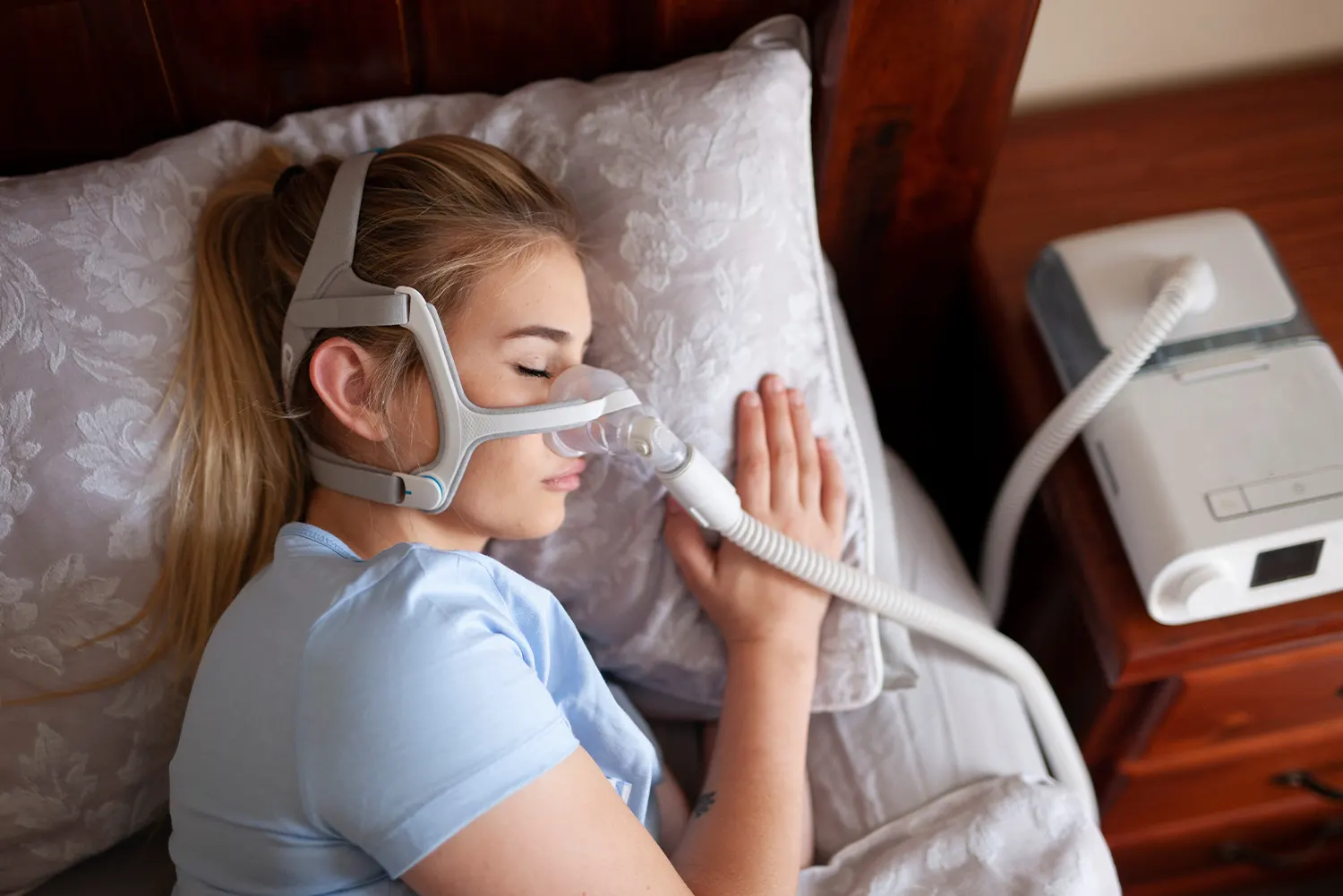Sleep apnea is a condition characterized by short interruptions in breathing during sleep. It may go unnoticed because it occurs while the person is asleep. One common symptom of sleep apnea is chronic snoring, although not all snorers have sleep apnea. It's more common in older individuals and those who are overweight, but younger, fit individuals can also be at risk. Studies suggest that as many as 1 in 4 Americans are at high risk for sleep apnea. If you experience symptoms like snoring or daytime drowsiness despite a full night's sleep, it's crucial to consult a healthcare professional. Diagnosis is typically done through a sleep study.

Obstructive sleep apnea is a type of sleep apnea in which the airway becomes blocked during sleep. This usually occurs when the muscles in the throat relax excessively, leading to the temporary collapse of the tissues in the throat and tongue. During these moments, the brain responds by briefly awakening the individual to restore normal breathing. However, the cycle can continue hundreds of times during the night, resulting in fragmented and disrupted sleep, leading to daytime drowsiness and fatigue. Recent studies have linked sleep apnea to various serious side effects, including cognitive impairment, cardiovascular problems, diabetes, acid reflux, and more.
3We are here to assist you during a dental emergency, even if you have not been a patient at our office previously. If you require urgent dental care, please don't hesitate to reach out to us. Your well-being is our priority, and we are ready to provide the help you need. There are a few precautions you can take to avoid future dental emergencies. Our most important piece of advice is to treat your teeth with care & respect. You only get one set of permanent teeth! Stopping bad habits like nail biting or chewing on pens & other inedible objects can go a long way in preventing future dental disasters. Improvements to your dietary habits can also contribute to dental longevity. Eating ice or hard & sticky candy is rough on your teeth & will wear them down or even loosen them. If certain foods take extra effort to chew, it's probably best to avoid them.
Athletes & kids who play sports should always wear protective mouthguards during physical activities. These can be purchased at the store or from a dentist. An athletic mouthguard that fits well is more likely to prevent injuries, so make sure to have a dentist take a look at yours. Even minor teeth shifting can affect how your mouthguard fits.
If you're having problems with a store-bought sports mouthguard, the dentist can usually make one that's better for comfort & protection. After all, you're more likely to wear a mouthguard when it fits nicely! Get in the habit of bringing your mouthguard to every dental appointment in case it needs adjustment.
Keeping these tips in mind can save you a lifetime of dental visits & expenses. We're happy to care for you during a dental emergency, but we'd prefer you avoid one in the first place!
While the diagnosis and prescription for sleep apnea treatment are typically provided by a general physician, dentists can also play a role in managing the condition. The most common treatment for sleep apnea is continuous positive airway pressure (CPAP), which involves the use of a machine that delivers a constant stream of air into the airways through a mask. While effective, CPAP therapy can be uncomfortable and may require some adjustment. Maintaining the equipment's cleanliness can also be a task.
Dentists offer an alternative solution through specialized dental appliances that resemble sports mouthguards. These devices keep the lower jaw in a position that prevents the tongue and upper throat muscles from collapsing into the airway during sleep. Unlike CPAP machines, these custom-fitted dental appliances are more comfortable and convenient for many patients. Additionally, they can also help prevent snoring, providing a better night's sleep for both the patient and their sleep partner.
If you've been diagnosed with sleep apnea, your dentist can collaborate with your healthcare provider to determine the best dental device that will help you maintain unobstructed breathing during sleep.